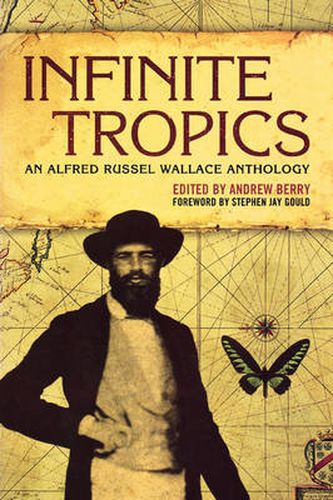Readings Newsletter
Become a Readings Member to make your shopping experience even easier.
Sign in or sign up for free!
You’re not far away from qualifying for FREE standard shipping within Australia
You’ve qualified for FREE standard shipping within Australia
The cart is loading…






Alfred Russel Wallace’s reputation has been based on the fact that, at age thirty-five and stricken with malaria in the Moluccan Islands, he stumbled independently upon on the theory of natural selection. Andrew Berry’s anthology rescue’s Wallace’s legacy, showing Wallace to be far more than just the co-discoverer of natural selection. Wallace was a brilliant and wide-ranging scientist, a passionate social reformer and a gifted writer. The eloquence that has made his The Malay Archipelago a classic of travel writing is a prominent feature too of his extraordinarily forward-thinking writing on socialism, imperialism and pacifism. Wallace’s opinions on women’s suffrage, on land reform, on the roles of the church and aristocracy in a parliamentary democracy, on publicly funded education-to name a few of the issues he addressed-remain as fresh and as topical today as they were when they were written.
$9.00 standard shipping within Australia
FREE standard shipping within Australia for orders over $100.00
Express & International shipping calculated at checkout
Alfred Russel Wallace’s reputation has been based on the fact that, at age thirty-five and stricken with malaria in the Moluccan Islands, he stumbled independently upon on the theory of natural selection. Andrew Berry’s anthology rescue’s Wallace’s legacy, showing Wallace to be far more than just the co-discoverer of natural selection. Wallace was a brilliant and wide-ranging scientist, a passionate social reformer and a gifted writer. The eloquence that has made his The Malay Archipelago a classic of travel writing is a prominent feature too of his extraordinarily forward-thinking writing on socialism, imperialism and pacifism. Wallace’s opinions on women’s suffrage, on land reform, on the roles of the church and aristocracy in a parliamentary democracy, on publicly funded education-to name a few of the issues he addressed-remain as fresh and as topical today as they were when they were written.